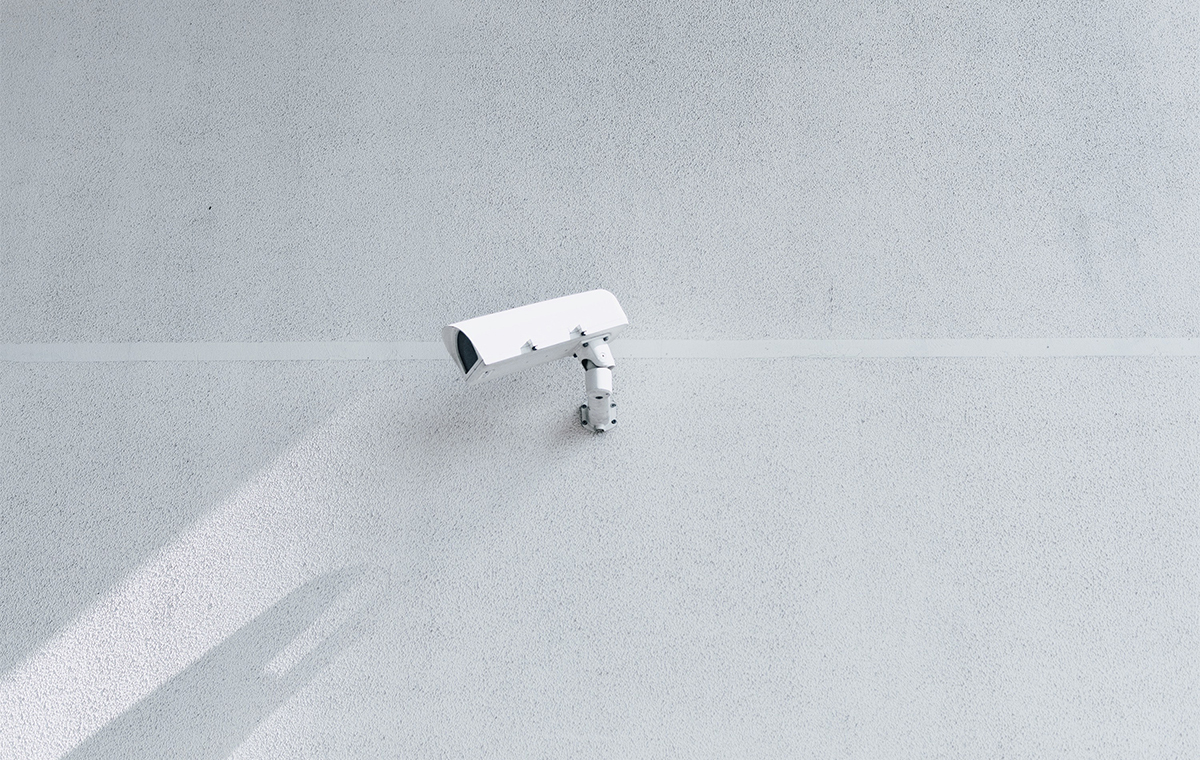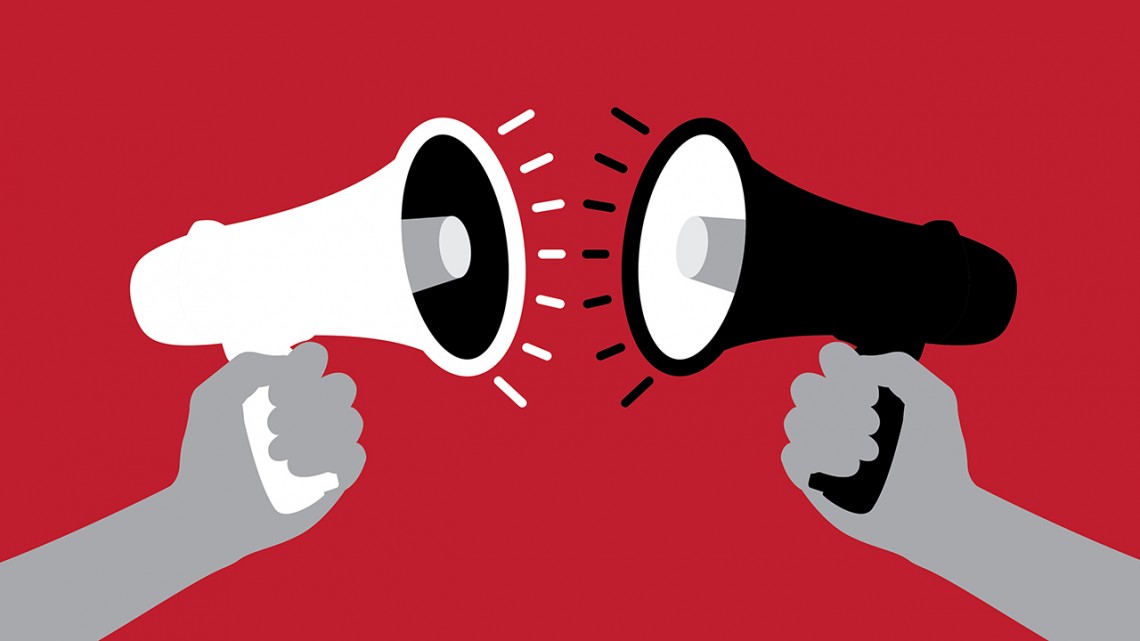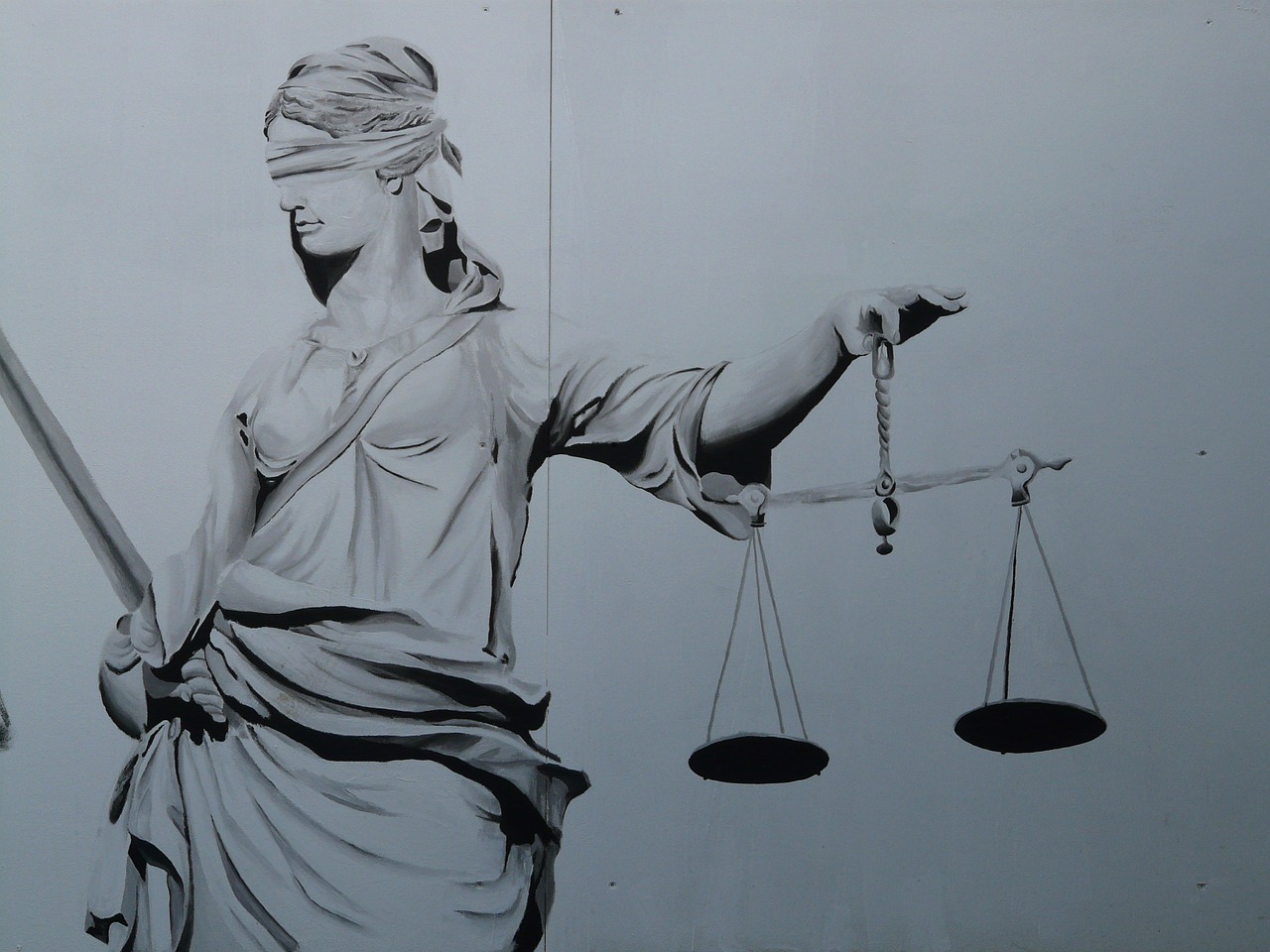16 December 2024
Summary 2024
Slowdown of YouTube, arrest of Pavel Durov, exercises on Runet isolation, pressure against foreign agents, laws on prohibition of circumventing blockings, on childfree propaganda and on registration of bloggers.
We have divided main events from the digital rights words of this year into 12 topics. We highlighted key events of each month. More often the news did not impart positive emotions, but sometimes left some hope.

January
Disruption of Runet
At the beginning of the year, Russia experienced «regional disconnection». Residents of Primorye, Kamchatka, Sakhalin, Khabarovsk Krai, and the Moscow and Volgograd regions faced connectivity issues at the same time.
The longest outage occurred in the Sakha Republic (Yakutia), where WhatsApp and Telegram were unavailable from January 23 to 27. It is speculated that the Yakutia authorities used this as a tactic to quell protests sparked by the murder of a local resident.
By January 30, websites with .RU and .РФ domains were no longer available to Internet users across the country. Experts explained that the problem was caused by “incorrect DNSSEC settings” on the DNS servers responsible for these domains. This was later confirmed by the Ministry of Digital Development.
The Net Freedoms Project suggested that these disruptions were a side effect of the government’s ongoing experiment to create a national domain name service.
The Baymak Case
In January, protests were held in the town of Baymak in Bashkortostan against the prosecution of environmental activist Fail Alsynov, who was accused of «inciting hatred» for a speech he made in the Bashkir language about problems in the region.
Some Telegram channels and websites that covered the protests were blocked.
The court eventually sentenced Alsynov to four years in a general-regime penal colony. On the eve of the hearing, WhatsApp was disrupted across the republic, and internet access was almost completely unavailable within several kilometers of the court — even VPNs failed to restore connection.
What happened next


February
The «Yarovaya Law» Endangers Online Security
The European Court of Human Rights (ECHR) issued its first judgement on the «Telegram encryption keys» case.
In 2017, Russia’s Roskomnadzor (The Federal Service for Supervision of Communications, Information Technology and Mass Media) added Telegram to the Register of Information Dissemination Organizers (ORI) at the request of the FSB (Russia’s Federal Security Service). Under the «Yarovaya Law», platforms on this list are required to collect, store, and hand over all user data, including private messages, to the security services upon request.
Telegram refused to provide the FSB with its encryption keys, resulting in a fine of 800,000 rubles and later a nationwide ban. This led to the «Battle for Telegram» campaign, in which Russian internet users, supported by Roskomsvoboda lawyers, argued that the request violated confidentiality laws. After exhausting all legal remedies in Russia, they filed a collective complaint with the ECHR.
On February 13, the ECHR ruled that the «Yarovaya Law» posed a threat to the security of all internet users. The court stated that backdoors facilitate mass surveillance and that Russian legislation lacks adequate safeguards against abuse.
What Does the ECHR Ruling Mean?
Although Russia withdrew from the Council of Europe (CoE) on March 15, 2022, the ECHR continues to process cases submitted before that date. Technically, Russia is obliged to comply with these judgements.
Nevertheless, the decision remains significant:
-
ECHR judgements shape international judicial practice.
-
They provide the global community with an accurate picture of Russia’s internal affairs.
-
It is not excluded that one day these judgements will be enforced by the Russian state. There is a precedent of a return to the Council of Europe, which could make the implementation of such decisions a reality in the future.
«This is a decisive victory in declaring the “Yarovaya Law” incompatible with the European Convention and international law. We’re satisfied that after five years justice has prevailed. Of course, any financial compensation would not have been paid by the Russian authorities anyway», — commented cyber lawyer Sarkis Darbinyan, who represented the complainants.
What happened next


March
Ban on Promoting Tools to Bypass Censorship
A new law banning the dissemination of information about tools to bypass internet censorship in Russia came into force on 1 March. It is now illegal to advertise or discuss VPNs, Tor browsers, and anonymizers.
Websites can now be blocked for providing any information on how to access restricted resources. Even offers to purchase such tools are subject to the ban. Initially, scientific and statistical data were exempted, but a later order from Roskomnadzor extended the prohibition to include these as well, effective November 30.
Platforms that refuse to remove VPN-related content face fines of up to 4 million rubles and potential blocking.
Restrictions on Advertising by «Foreign Agents»
As of March 22, advertising on platforms deemed to be «foreign agents» or by «foreign agents» is prohibited.
The law broadly defines advertising as any information intended to draw attention to an advertised object.
Violations by «foreign agent» entities are punishable by fines of up to 500,000 rubles or, for repeat offenses, criminal charges with penalties of up to two years’ imprisonment. Advertisers themselves are also subject to fines but not criminal liability.
These violations are considered continuing, meaning enforcement is based on when the advertisement was detected, not when it was published.
What happened next


April
Blocking of Reporters Without Borders
Roskomsvoboda discovered that the website of the international non-profit organization Reporters Without Borders (RSF) was blocked in Russia. The block applied to all domains and subdomains.
The decision was reportedly made by an unspecified state body, presumably the Prosecutor General’s Office, which has the authority to enforce military censorship and block materials deemed “extremist” or associated with «undesirable organizations».
Roskomnadzor later confirmed the blocking, citing the dissemination of «false information» about the «special military operation».
Electronic Summons System
In April, the government announced that the Unified Register of Military Records (URMR) would be launched on November 1. This system consolidates data from the FSB, Ministry of Internal Affairs, tax authorities, migration services, and the Gosuslugi platform, providing military authorities with access to information on criminal and administrative records, real estate, and more.
However, the system was not launched on November 1. The Chairman of the Duma Defense Committee, Andrey Kartapolov, stated that the fall of 2024 draft would be held under the old rules, and that the URMR would be fully operational by 1 January 2025.
Meanwhile, testing of the system has begun in three regions: Ryazan and Sakhalin oblasts and the Mari El Republic. Kartapolov emphasized that only physical draft notices would serve as legal grounds for conscription in the fall.
What happened next


May
«Stop Helping Censor Runet»
Access Now, OVD-Info, Teplitsa of Social Technologies, Roskomsvoboda, and other organizations have called on YouTube and its parent company Google to evaluate all orders and requests from Russian authorities to block content based on international human rights standards.
Since February 2024, the video hosting platform has blocked several videos from Russian independent media outlets and Russian public figures. Notifications of these blocks were also sent to the YouTube channels of Roskomsvoboda, OVD-Info, the Internet Protection Society, and others, including the personal channel of journalists Ekaterina Kotrikadze and Tikhon Dzyadko.
Following widespread media coverage in May, some of the videos were eventually unblocked.
«YouTube needs to understand that the Russian information laws under which Roskomnadzor requests content to be blocked, not only contradict to YouTube’s own principles and policies but also to international human rights standards. The European Court of Human Rights has repeatedly found Russian legal norms regarding access restrictions to be vague and clearly incompatible with the European Convention.
We urge you to address these critical human rights issues on your platform», — the open letter states.
Major Blocks
On May 23, the website of the VPN Generator project was added to the registry of banned information. The blocking was initiated by Roskomnadzor. It is likely that the agency’s decision was related to the prohibition of access to resources providing information on how to circumvent censorship.
A week later, an «unnamed government agency» finally blocked the website Compromat.ru. The history of blocking the platform began in 2017 when the Moscow City Court restricted access to it. Later that year, the website was removed from the registry. Even then, media noted that Compromat had numerous «mirrors», making it difficult for oversight authorities to completely block access.
What happened next


June
Blocks, Blocks, and More Blocks…
At the request of Roskomnadzor, the Opera browser removed the censorship bypass extension Censor Tracker from its app store. Earlier, the tracker had also disappeared from the Firefox browser’s store.
In addition, Roskomnadzor blocked the websites of the independent publishing house Freedom Letters and Boris Akunin’s library, BAbook. The reason for these restrictions was that both Freedom Letters and BAbook had been selling Vladimir Sorokin’s book Heritage.
Earlier this year, the novel was subjected to an expert review following a public complaint alleging that it promoted «non-traditional relationships» and violence against children. Later, publishers AST, Eksmo, and Pareto-Print were fined 4 million rubles for «distributing pornographic materials» allegedly identified by the experts in Heritage.
In June, censorship targeted the song «Give Me 1,000 Children» by the band Pornofilmy. Initially, the track was removed from Yandex Music and VK, and later it was added to the registry of banned websites. As usual, the decision to block it was made by an «unnamed government agency».
Previously, two other songs by the band, «This Will Pass» and «Kill the Poor!», were also removed. A court in Volgograd even declared «Kill the Poor!» an «extremist» song. Following a listener’s report, police also investigated the band’s lead singer, Vladimir Kotlyarov, for «extremism».
What happened next


July
YouTube Slowdown
In July, Alexander Khinshtein, then the head of the State Duma IT Committee, announced that YouTube’s video loading speed would decrease by 70%. This slowdown affected only desktop versions of the platform.
Initially, the authorities described the slowdown as a «necessary measure aimed at the platform’s administration» and a response to «YouTube’s anti-Russian policy, which has systematically deleted the channels of our bloggers, journalists, and artists».
Soon after, the official narrative shifted to blaming Google, YouTube’s parent company. Authorities claimed that the issue stemmed from Google’s compliance with sanctions against Russia, which prevented it from officially paying for services provided by Russian data centers. These data centers, in turn, were unwilling to continue «off-the-books» cooperation.
Technical experts from Roskomsvoboda suggested that both factors contributed to the issue.
YouTube’s infrastructure in Russia has reportedly not been updated since 2022. However, the equipment is considered «highly reliable» and was expected to work for 5–7 years.
On July 12, experts detected intentional throttling, or forced slowing, of video streams. They argued that throttling played a more significant role in the performance issues than the outdated infrastructure.
500+ Sites Banned for Circumventing Blockades
Between March 1 and the end of July, after the law prohibiting information on bypassing internet blockings came into effect, Roskomnadzor blocked over 500 related links.
Most of these platforms offered advice on selecting VPN services and provided installation instructions.
What happened next


August
Pavel Durov’s Arrest in France
On August 24, Telegram founder Pavel Durov was detained at Paris-Le Bourget airport. Authorities accused him of complicity in managing a platform used for illegal transactions, failing to comply with law enforcement data requests, storing and distributing child pornography, and participating in drug trafficking and fraud.
Durov’s arrest sparked reactions from business leaders, public figures, journalists, and human rights advocates, who saw the actions of French authorities as an attempt to coerce Telegram into closer collaboration with law enforcement.
In 2017, it was revealed that French intelligence had hacked Durov’s phone in cooperation with colleagues from the United Arab Emirates. Intelligence services suspected that ISIS (a terrorist organization banned in Russia) was using Telegram for recruitment. At the time, Telegram’s administration had been ignoring subpoenas and court orders for several years.
In the summer of 2024, both Pavel and his brother Nikolai Durov were placed on France’s wanted list.
Following the court hearings, the number of charges against Pavel Durov was reduced from 12 to 6. He posted €5 million in bail and was released under judicial supervision. The date of the next hearing remains unknown.
Shortly after his release, Telegram rolled out an update aimed at combating illegal content. Commenting on the matter, Durov stated: «I was told that I could be held personally liable for how others use Telegram».
By December, Telegram announced that it had blocked more than 15 million channels and groups in one year.
Restrictive Legislation Package
In August, Vladimir Putin signed several restrictive laws regulating online space.
Key provisions included:
- Mandatory registration with Roskomnadzor for accounts with more than 10,000 followers starting November 1. Non-compliance results in restricted access to such accounts.
- A limit of 20 SIM cards per individual.
- A ban on trash streams: Violators face fines of up to 1 million rubles, with confiscation of equipment used for streaming. If such streams feature murder, assault, abduction, or forced labor, they are considered aggravating circumstances under criminal law.
- Legalization of cryptocurrency mining in Russia starting November 2024.
20,000 Websites Under Military Censorship
The number of websites subjected to military censorship exceeded 20,000. It took the authorities nine months to block the most recent 5,000 websites. The most intense period of censorship remains February 24 to August 23, 2022, when 7,000 sites were banned.
In February 2024, Roskomnadzor reported that in total of about 236,000 pages containing «fake news about the military» had been blocked. However, this figure doesn’t contradict the data presented here. Many websites remove the flagged information after receiving warnings from Roskomnadzor to avoid inclusion in the official registry of banned resources.
Additionally, a significant portion of prohibited content is detected on social media platforms. For instance, VK often removes or blocks such materials in a timely manner.
Roskomnadzor noted a decline in the volume of blocked materials about the «special operation» as of April 2024, a trend confirmed by independent observations.
What happened next


September
Apple Cooperates with Roskomnadzor
The GreatFire project, which monitors online censorship, highlighted an alarming trend: Apple has been removing VPN apps from the Russian App Store.
Roskomnadzor officially stated that 25 VPN services were removed at its request. However, GreatFire’s investigation revealed that Apple discreetly removed about 60 VPN apps between June and September, bringing the total number of banned services to 98. The removals occurred on specific dates, indicating coordinated actions between Apple and Roskomnadzor.
The report found that over 20% of these removals took place without public notice.
The researchers called on Apple to provide a transparent explanation for its actions.
In another censorship move, Apple Music made the song «Это пройдёт» («This Will Pass») by the band Pornofilmy inaccessible to Russian users. The band confirmed that the removal was in response to a request from Roskomnadzor.
Additionally, the album «Новинки зарубежного рэпа» («Foreign Rap Hits») by Kasta was unavailable from September 23 to 25 but later returned to the platform.
60 Billion Rubles Allocated for Internet Blockades
Roskomnadzor is projected to spend nearly 60 billion rubles on censorship and blockades, as outlined in the federal project Cybersecurity Infrastructure, part of the national initiative Data Economy and Digital Transformation of the State.
The agency justified the spending by citing the growing volume of traffic that requires monitoring and control.
Electronic Summons: Test Phase
On September 17, a test version of an electronic summons registry for military draftees was launched in the Ryazan and Sakhalin regions, as well as the Republic of Mari El.
Initially scheduled for full implementation on November 1, the registry’s nationwide rollout has been postponed until January 1, 2025. According to Andrey Kartapolov, head of the State Duma Defense Committee, the fall 2024 draft will proceed under the «old rules».
What happened next


October
Discord Faces Controversial Ban
On the evening of October 8, Roskomnadzor began blocking Discord, citing violations of Russian laws. The agency claimed that the messenger was being used to facilitate terrorist activities, recruit individuals for extremism, sell drugs, and share illegal content.
The ban sparked a backlash from multiple groups:
-
Russian users, particularly young people, flooded comment sections with complaints and demands to restore access. Some even reached out to Yekaterina Mizulina, who had previously emphasized that the Russian military relied on Discord for drone operations. Military experts later echoed her claim, stating that the platform was widely used in the armed forces.
-
Vyacheslav Davankov, Vice Speaker of the State Duma and a member of the New People party, criticized the decision, noting that Discord had around 40 million users in Russia. He warned that such bans could soon leave the country without any social media accessible without VPNs.
On the same day, Roskomnadzor confirmed that it had been targeted by a DDoS attack.
European Court of Human Rights Orders Russia to Compensate «Foreign Agents»
The European Court of Human Rights (ECHR) ruled that Russia’s foreign agents law violates Articles 10 and 11 of the European Convention on Human Rights, infringing on citizens’ rights to freedom of expression and association.
The Court ordered Russia to pay 107 applicants €955,000 in compensation for material damages, up to €10,000 for non-material damages, and €850 for legal costs.
The case involved individuals and organizations such as Yuri Dud, Ekaterina Shulman, Mediazona, Important Stories, The Insider, the Nasiliu.net Center, Dozhd TV, Memorial, and others.
Despite Russia’s withdrawal from the Council of Europe and its refusal to comply with ECHR rulings after March 15, 2022, the importance of these judgments remains a key point of discussion.
What happened next


November
New Registries Introduced
On November 1, the military conscription registry, including the summons database, was officially handed over to the Russian Ministry of Defense. Although full implementation was originally planned for this date, its launch has been postponed to January 1, 2025.
Also starting in November, individual entrepreneurs and legal entities involved in cryptocurrency mining are required to register with a special registry. While individuals are exempt from this requirement, regional authorities now have the right to ban mining operations in their jurisdictions. For the first year, the registry will be maintained by the Ministry of Digital Development, with responsibilities transferred to the Federal Tax Service on November 1, 2025.
Additionally, social media accounts with more than 10,000 followers will now be required to submit their owner’s details to Roskomnadzor. Non-compliance will result in accounts losing the ability to host advertisements, and their content will be restricted from being reposted.
Ban on «Childfree» Advocacy
On November 12, the State Duma passed a law banning «propaganda of refusing to have children», introducing administrative penalties for violations. The maximum fine is set at 5 million rubles.
The lawmakers unanimously justified the ban by citing the ongoing hybrid war against Russia and framing the childfree movement as one of its instruments.
The law is expected to function similarly to the ban on «LGBT propaganda», but so far there have been no known cases of prosecution for advocating the childfree ideology.
What happened next


December
A Test of Disruptions
In early December, residents of Dagestan, Chechnya, and Ingushetia faced difficulties connecting to the internet. In these three regions, access to Google, YouTube, Telegram, and other foreign services was impossible, even through VPNs.
Some users reported issues with Russian services, including Yandex.Taxi. Local internet providers confirmed the access restrictions.
The authorities’ plans to conduct «drills» to disconnect from the global internet had been revealed back in November.
Regulators justified the drills by citing «the possibility of being cut off from the internet externally». However, some experts dismissed this explanation as a pretext, suggesting that Roskomnadzor was testing the potential consequences of disconnecting the Russian segment of the internet (Runet) from the global network.
A day later, residents of the three Caucasus regions regained access to the external internet. However, the disruptions didn’t stop there.
In Tuva, mobile internet and communication services were disrupted. Residents had to rely on cash transactions in stores as payment terminals in the region were not operational.
Viber Blocked and Service Issues Continue
On Friday the 13th, Roskomnadzor restricted access to Viber, citing the need «to prevent the messenger from being used for terrorist and extremist purposes, recruitment of citizens for such activities, drug trafficking, and the dissemination of illegal information».
On the same day, users in Karelia, Novgorod, and Oryol regions experienced difficulties accessing VK.
Another wave of restrictions also targeted YouTube. By the end of the year, YouTube traffic in Russia had dropped to 20% of its usual level.
Surveillance of WhatsApp and Skype Users
The Register of organizers of information dissemination (OID) was updated to include WhatsApp, Skype, Wire, and several other messengers. By the end of 2024, the total number of resources and services listed in the «surveillance» registry approached 500.
It’s worth noting that Roskomnadzor fills the OID registry at the request of the FSB. Inclusion in the list obliges services to collect, store, and, upon request, provide special services with all user data, including correspondence.

Our newsletter
The main news of the week in the field of law.
Contacts
18+
On December 23, 2022, the Ministry of Justice included Roskomsvoboda in the register of unregistered public associations performing the functions of a foreign agent. We disagree with this decision and are appealing it in court.





